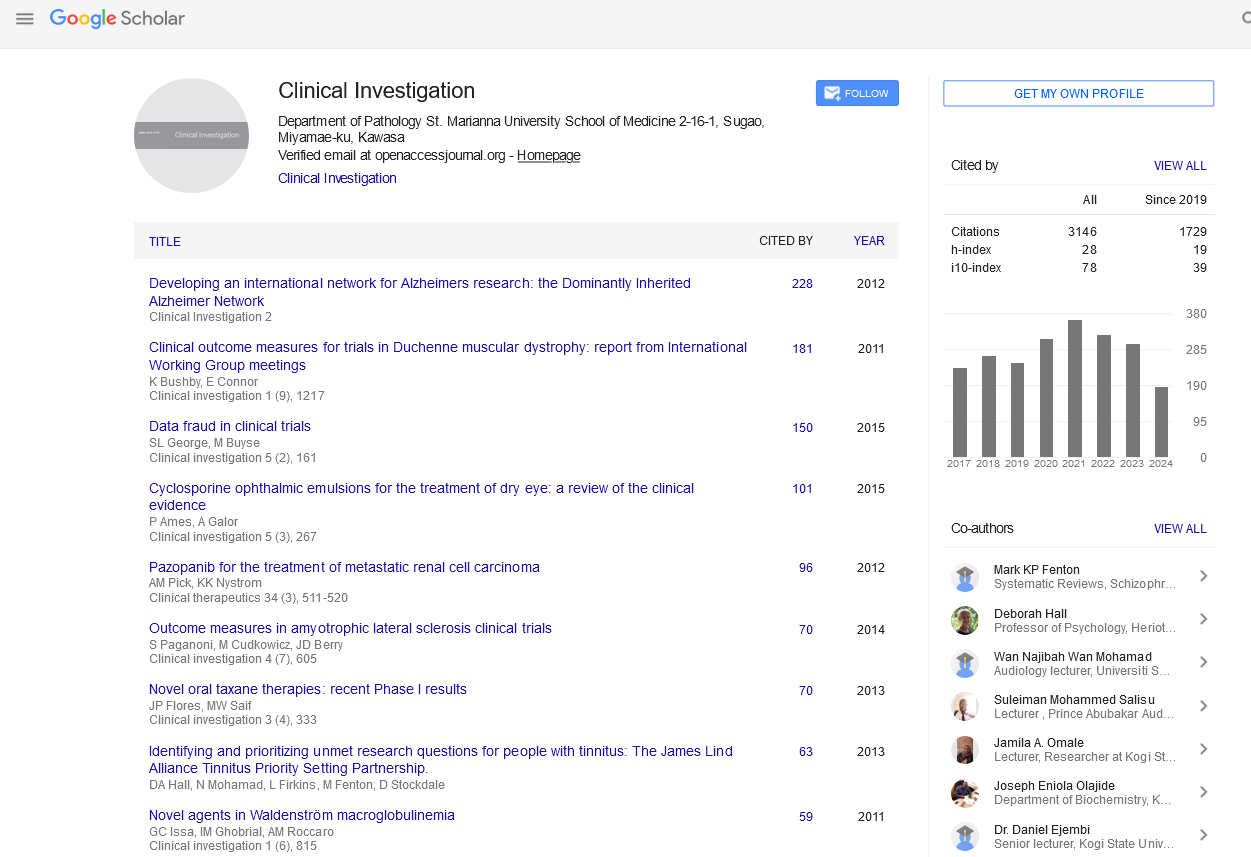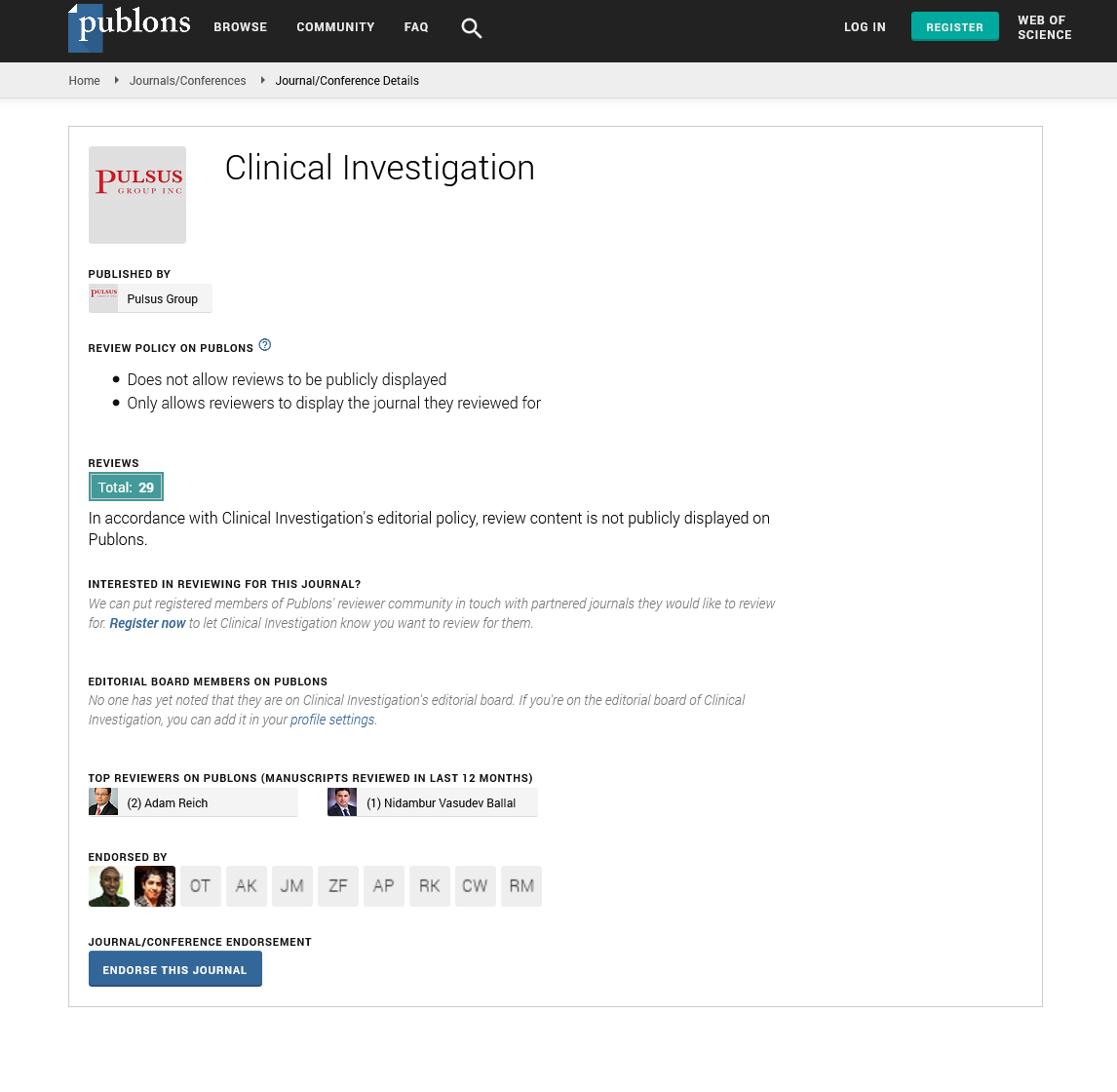Short Communication - Clinical Investigation (2020) Volume 10, Issue 4
Anti-hypertensive medications and change in stages of chronic kidney disease in American adults: NHANES 1999-2014
Abstract
Question: Is there change in the association between treatment of hypertension and stages of Chronic Kidney Disease (CKD) in American adults from 1999 through 2014? Background: It is known that hypertension is a comorbid condition of Chronic Kidney Disease (CKD) that can damage the kidneys and accelerate progression ending in kidney failure. The prevalence of CKD has remained relatively flat (13-14%) since 2000, but the prevalence of advanced stages of CKD has increased. Recent studies have suggested a potential relationship between anti-hypertensive medications and kidney damage. Objective: The goal of this study was to estimate the relationships between treatment of hypertension and Chronic Kidney Disease (CKD) stages among American adults, and determine if the relationships have changed from 1999 to 2014. The role of classes of anti-hypertensive medications in these relationships was also examined. Methods: The U.S. National Health and Nutrition Examination Survey data sets were analyzed from 1999 to 2014. Inferential analyses to determine the change in relationships between CKD stages and treatment of hypertension was done with multinomial logistic regression models.


